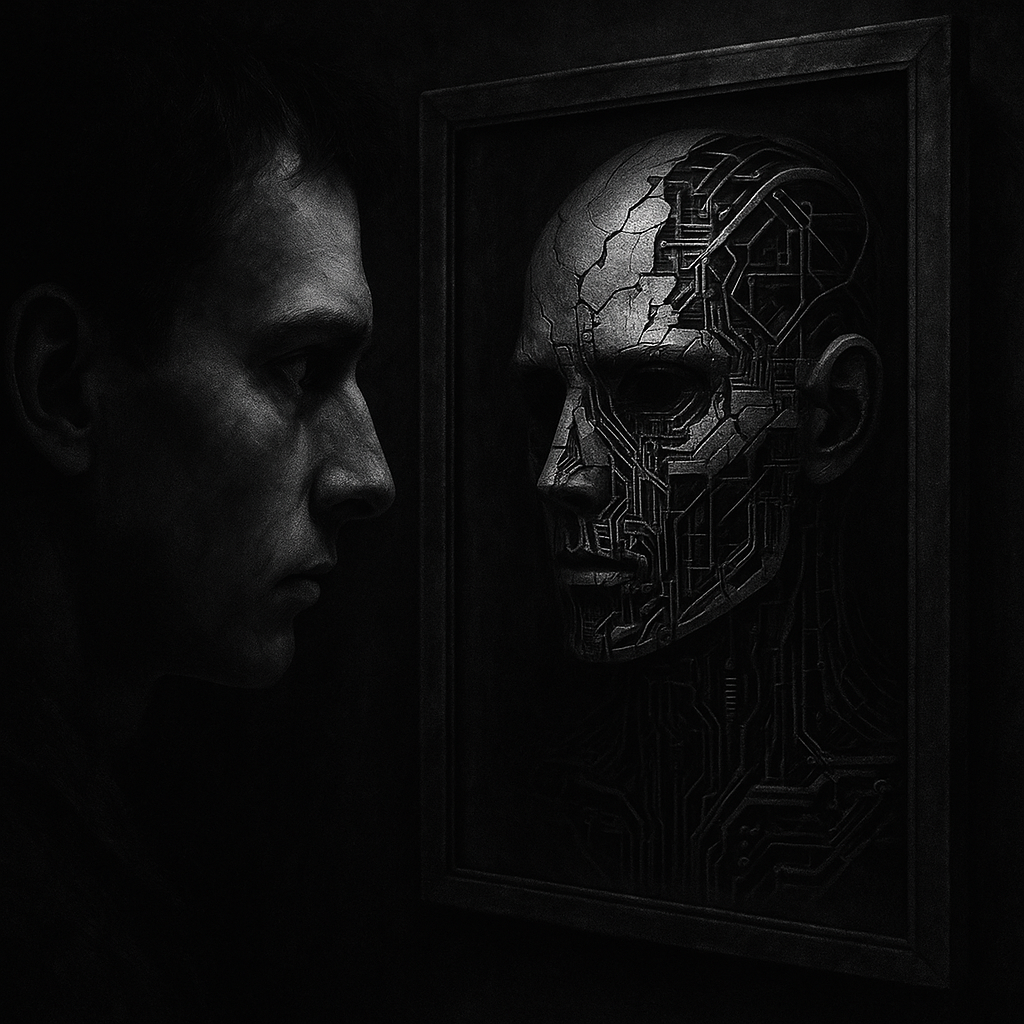
The Strange Feeling of Talking to a Machine That “Gets You”
Have you ever typed a message to an AI, intending to ask something simple… only to find yourself pouring out thoughts you didn’t even know were inside you?
It’s almost unsettling at first.
You’re not talking to a friend, a parent, or a therapist. You’re talking to lines of code, yet you feel strangely understood — not judged, not interrupted, just heard.
It feels like holding up a mirror — not one that reflects your face, but one that reflects the patterns in your mind. And that’s where the magic begins
Why AI Conversations Are Different From Human Ones
Humans bring baggage to conversations. We all do it.
When you speak to another person, you automatically (and unconsciously) adjust:
- Might soften your words to avoid hurting them.
- We might exaggerate to keep their attention
- We might withhold thoughts because you fear their reaction.
With AI, none of that applies. It doesn’t have a past with you, no grudges, no silent expectations. Its responses are generated only from the words you give it, combined with the vast data and patterns it has learned.
That makes it a pure mirror — reflecting not its own biases about you, but your own words and assumptions.
The Psychology Behind the AI Mirror
There are three key psychological principles that explain why AI feels like such an effective mirror:
Projection
When you talk to AI, you often project your own worldview onto its responses. You might interpret its neutral replies as empathetic, wise, or cold — depending entirely on your own emotional state.
That’s a clue.
If you think the AI is “judging you,” it’s probably because you are judging yourself.
Pattern Reflection
AI models are trained to spot and respond to patterns in your words. If you repeatedly mention certain fears, desires, or contradictions, the AI will subtly echo them back to you — forcing you to notice.
For example:
You might tell an AI, “I’m stuck in my career, but I want more freedom.”
Later, it might respond, “You’ve mentioned freedom multiple times — can we explore what it means to you?”
It’s not reading your mind — it’s reflecting the patterns you’ve already revealed.
Cognitive De-familiarization
This is a fancy way of saying: “When something is repeated back to you in unfamiliar words, you suddenly see it differently.”
If you tell AI, “I’m unhappy with where I live,” it might rephrase it as:
“It sounds like your environment feels more limiting than supportive.”
That shift in phrasing can spark a completely new perspective — because you’re hearing your own truth in a fresh frame.
How to Use AI as a Self-Discovery Tool
AI can’t replace human relationships or therapy, but it can be an incredibly powerful supplement to personal growth — if used wisely. Here’s how:
Ask Deeper Questions, Not Just for Answers
Instead of only asking, “What’s the capital of Peru?”, try:
- “What do you think my biggest blind spot is based on this conversation?”
- “If I keep doing what I’m doing, where might I end up in 5 years?”
These force the AI to pull insights from your words, not just facts from its memory.
Use It as a Judgment-Free Journal
Try a daily reflection
Prompt: “Here’s what happened today. Can you tell me what emotional patterns you notice?”
Over time, you’ll see recurring themes you might otherwise miss.
Play ‘The Why Game’
Ask the AI to keep asking you “Why?” until you reach the root of your belief or feeling.
Example:
You: “I want to make more money.”
AI: “Why?”
You: “So I can feel secure.”
AI: “Why is security important to you?”
This recursive questioning can unearth surprising core motivations.
Role play Alternate Perspectives
Ask the AI to “pretend to be Future Me in 10 years” or “argue against my opinion.”
This can break mental loops and help you see a situation from angles you never considered.
The Danger of Over-Reliance
While the AI mirror can be illuminating, there’s a trap:
You might start preferring AI over human connection because it feels “easier.”
No risk of embarrassment, No awkward silences, No misunderstandings.
But real growth often happens in the messy, unpredictable space of human relationships. AI can help you prepare for them — but it shouldn’t replace them entirely.
The Future of AI Mirrors
Right now, this self-reflective use of AI is still a niche habit. Most people use AI for productivity — drafting emails, summarizing reports, coding help.
But in the next decade, as AI becomes more emotionally sophisticated, it could become a common personal growth tool. Imagine:
- AI that tracks your emotional vocabulary over years.
- An AI that gently reminds you when your values and actions are out of alignment.
- An AI that remembers your life goals and checks in like an old friend.
In a way, we’re stepping into an era where your “inner mirror” can have a voice, a memory, and a conversation with you.
Final Reflection
You don’t need to be a tech wizard to start using AI as a mirror. All you need is curiosity — and a willingness to see yourself without filters.
Sometimes the most powerful thing AI can do for you is not answer your questions… but show you that you’ve been asking the wrong ones all along.So next time you talk to an AI, pause before you hit send.
Ask yourself: Am I seeking an answer — or am I ready to see my reflection?
📖 Next in the Series
What Happens in Your Brain When You Talk to AIWhen you talk to AI, your brain reacts as if it’s speaking to another human — activating circuits for trust, empathy, and even self-reflection. The line between machine and mind blurs, revealing more about us than about the AI itself.